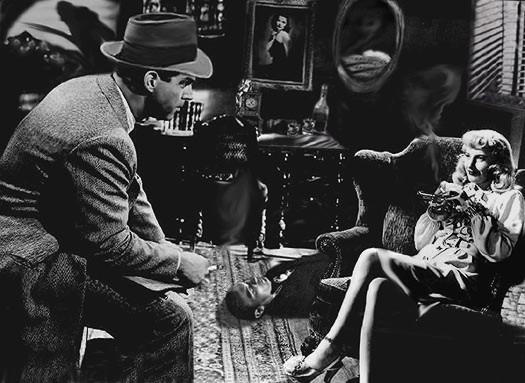In some ways this film should be required viewing for any young filmmaker or short story writer. Made by the now very old Portuguese director, Manoel de Oliveira, it is a primer in basic narrative taken from a worn but still sturdy carpet bag full of tools: image, gesture, word. The film begins on a train with one stranger (handsome young man) telling another stranger (attractive older woman) the "terrible" story of what has happened to him. This scene alone could take a dissertation to dissect, but what it perfectly establishes is a backdrop of irony against which the rest of the film will play out. The story, which of course turns out to be a rather banal love story involving the blonde of the title, then proceeds in cuts back and forth from the train to flashbacks. We are compelled to pay attention to details, juxtapositions, and influences imitated and cited. This last element is perhaps the most significant, and certainly for this filmmaker. His movie is based on a story by a well known Portuguese writer, Eca de Queiroz, to whom the film is also dedicated and within the film there is further homage paid in a formal description of his accomplishments and a shot of a marble bust made in his image. And at the center of the film, a poem by the great Portuguese poet Fernando Pessoa is read in full at a salon. Oliveira's film is also an homage to old world cinema, and to that great, decandent European city, Lisbon. The movie unfolds with a loving slowness and joyful simplicity that we are no longer used to, that we no longer really even know how to respond to.

No comments:
Post a Comment